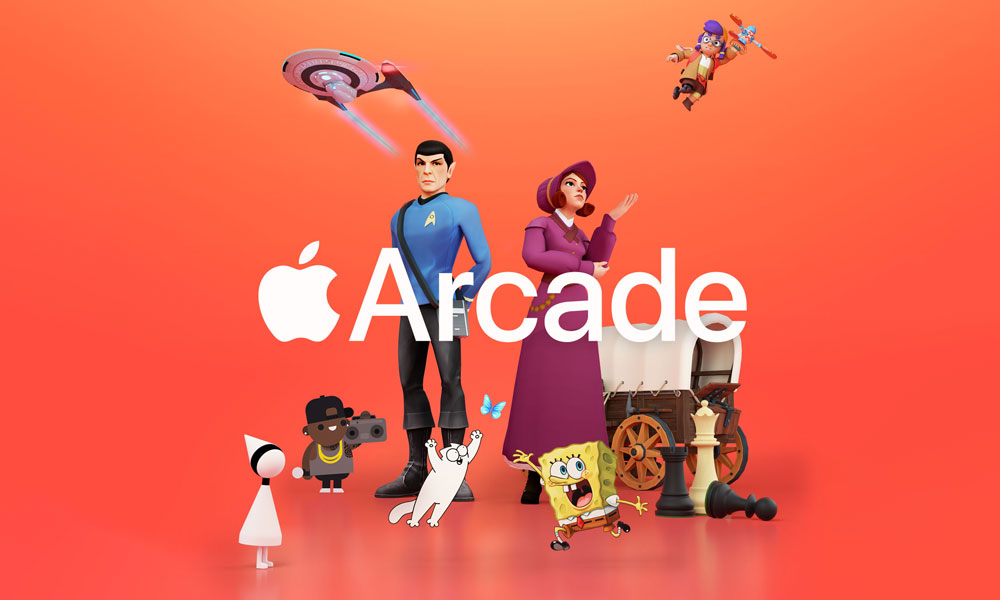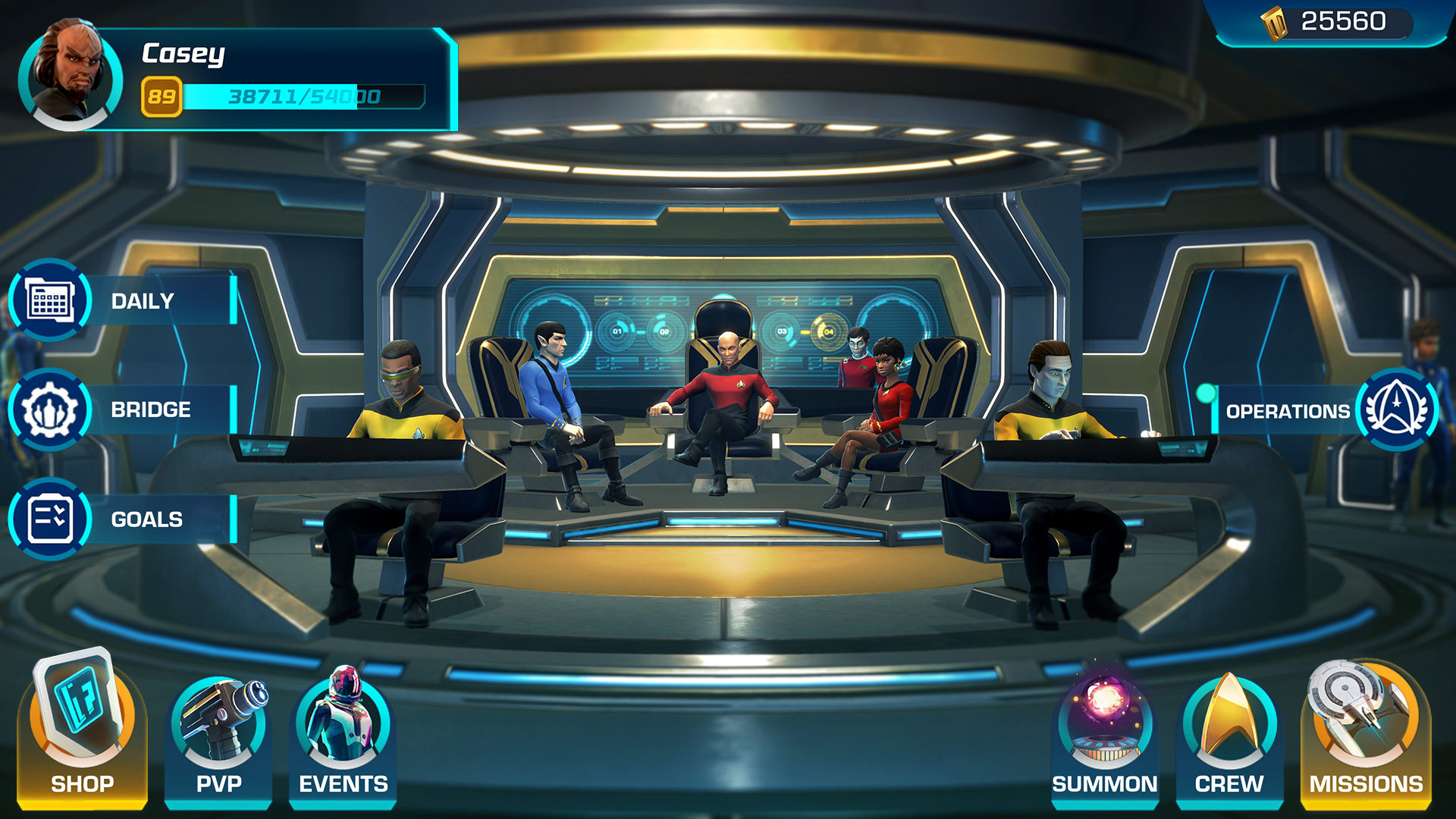It’s a Big Day for Apple Arcade
 Credit: Apple
Credit: Apple
Toggle Dark Mode
It’s hard to believe that it’s been two years since Apple announced Apple Arcade, the company’s first foray into a gaming subscription service that would be tightly tied to the App Store. While it took a few more months for the service to actually launch, when it arrived it promised an all-you-can-eat buffet of great games for only $4.99 a month.
As exciting as the concept of Apple Arcade was, however, it took a bit of time for it to gain a real footing — Apple promised 100 game titles, yet it only launched with around 62, with several others waiting in the wings. Additional titles began appearing on a weekly basis, with no signs that Apple was slowing down in its quest to hit the 100-game milestone as quickly as it could.
Arguably, the very best part of Apple Arcade is that once you laid down your $4.99 monthly subscription fee, you were good to go. The game titles on the service had no ads and no in-app purchases or other monetization. Instead, Apple poured in over half a billion dollars to ensure that game developers would be able to build great titles without the need to figure out how to make money directly from game players.
By all reports, indie game developers loved it, since it allowed them to get even more creative and take bigger risks, without all the negativity and pressures of so-called “free-to-play” apps. While the terms of the deals between Apple and its Arcade developer partners are confidential, it’s essentially a business model much like how movies and TV shows get produced for Apple TV+ or Netflix: Apple bankrolls the projects up-front, making sure developers get paid, and then simply recoups those costs from the Apple Arcade subscription fees.
Naturally, development for Apple Arcade is a “by-invite-only” process, since Apple wants to make sure the games meet its standards. However, during the early days of Apple Arcade, it was clear that the company was courting a fairly diverse group of developers, embracing everything from casual puzzlers to more serious action games.
Last summer, however, Apple changed course, cancelling at least some developer contracts as not aligning with the company’s new goal of publishing more “engaging” games that would keep users coming back for more.
As reported at the time, the problem was that despite reaching 120 titles on Apple Arcade, the service lacked any “huge hits.” Apple’s initial approach seemed to be to ensure that the collection of game titles would have something for everybody, but the number of more casual games likely meant that it wasn’t holding the subscriber numbers it wanted.
It’s unclear how much Apple continued to push that new strategy, but it’s also worth keeping in mind that the launch of Apple One last fall would have changed the dynamic for subscriber numbers even more, since Apple Arcade is now effectively bundled for almost nothing, depending on how you look at it.
Enter Fantasian
This month, however, Apple Arcade has just gotten its biggest expansion ever, adding over 30 new game titles in one fell swoop, along with the service’s most highly anticipated game.
When Apple took the stage two years ago to announce Apple Arcade, it highlighted legendary Final Fantasy creator Hironobu Sakaguchi as one of the developers on board to develop Fantasian — an exclusive, never-before-seen game for Apple Arcade.
Unfortunately, Fantasian was conspicuously missing when the service launched, leaving at least some folks scratching their heads. Of course Rome wasn’t built in a day, and one can’t expect an RPG that’s built at the level of Final Fantasy to be either. Two years later, however, and Sakaguchi’s latest masterpiece is ready, and it’s available exclusively to Apple Arcade subscribers.
Fantasian, which like most Apple Arcade titles is playable across the iPhone, iPad, Mac, and Apple TV, plays like a traditional RPG, but what sets it apart from the rest is that it’s been designed with over 150 handcrafted physical diorama models.
In the game, players assume the role of a character who awakens in a strange land with almost no memories of how he got there.
The tale begins in a realm governed by machines. Within this multi-dimensional universe, the balance of “Chaos and Order” becomes a key factor in the struggle for these realms and the machinations of the gods who wish to control them. Players will assume the role of protagonist, Leo, who awakens from a massive explosion only to find himself lost in a strange land with only one memory left to him.
As Sakaguchi told the LA Times last month, he actually went back to replay Final Fantasy VI when developing Fantasian, which made him want to return to his RPG roots. He also cites Final Fantasy VI, which was released on the same day as Fantasian, as helping to inspire the creation of it.
The dioramas have been put together by veteran special effects, or Japanese “Tokusatsu,” artists who have worked on projects like the Godzilla films, Attack on Titan, and Ultraman. Fantasian also features a soundtrack by Nobuo Uematsu, the composer behind the rest of the Final Fantasy series and other games such as Lost Odyssey and Blue Dragon.
Timeless Classics and App Store Greats
The launch of Fantasian would be a big deal all by itself, but Apple isn’t stopping there. It turns out Fantasian is only one of 30 new games that have just debuted on Apple Arcade.
Calling it the “biggest expansion yet” for the gaming service, Apple has actually branched out into two new categories that signal a departure from the original vision of focusing solely on exclusive games.
Exclusive new Apple Arcade Originals games are joined by two new categories, Timeless Classics and App Store Greats, all with no ads or in-app purchases
While Fantasian demonstrates that Apple will certainly continue to offer “Apple Arcade Originals” as its flagship titles, it’s actually gone back into the vaults of the App Store and brought some of the most popular App Store games into the Apple Arcade fold.
For example, in the “App Store Greats” category, subscribers can find games like Monument Valley, Mini Metro, Threes!, Fruit Ninja Classic, Badland, and The Room Two — all now available at no additional charge for Apple Arcade users.
While long-time App Store gamers will probably have bought many of these years ago, it’s an opportunity for Apple to expand the catalog, and developers to introduce them to a whole new generation of players.
Meanwhile, among the “Timeless Classics” you’ll find puzzle and board games like Sudoku Simple, Backgammon, and Solitaire, as well as variations such as Really Bad Chess.
Apple isn’t standing still at all on its Apple Arcade Originals, however, and in addition to Fantasian, it’s added several other high-profile games for Apple Arcade subscribers, including NBA 2K21 Arcade Edition, Star Trek: Legends, The Oregon Trail, Cut the Rope Remastered, SongPop Party, and Simon’s Cat: Story Time.








